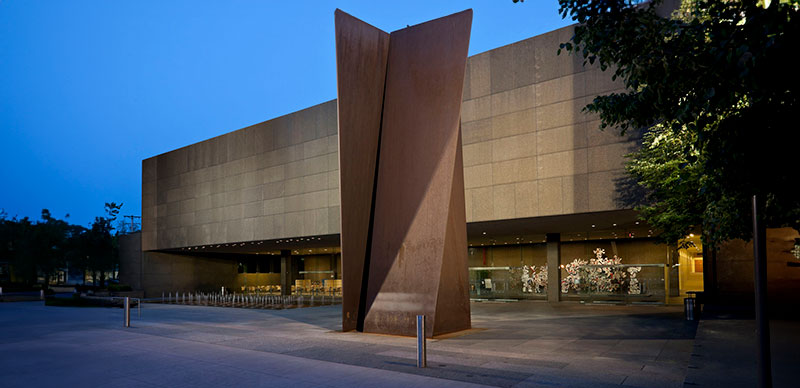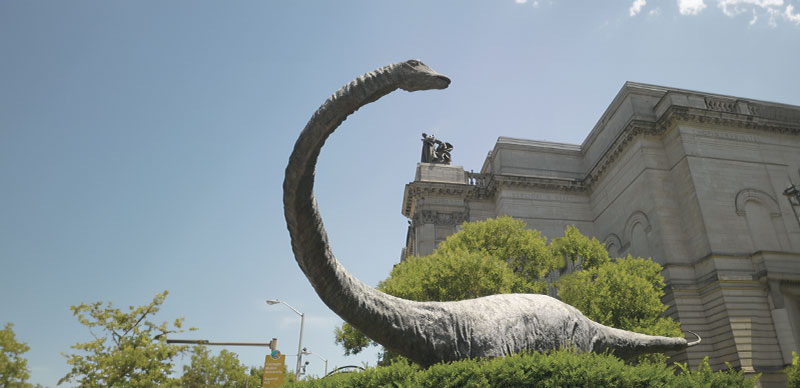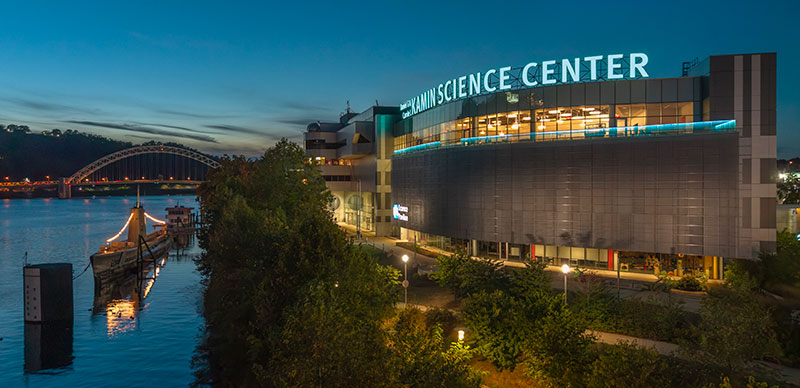
Photo: Joshua Franzos
On February 18, Carnegie Science Center hosted a socially distanced party for a small number of visitors on-site, with hundreds of additional participants online. They had come together to witness and celebrate the historic landing of NASA’s Perseverance rover, gently lowered onto the Martian soil by an ingenious jet-powered “sky crane” after its journey of nearly seven months and about 300 million miles.
Space has long been at the core of programming at the Science Center, which was founded in 1987 through a merger of Carnegie Museums and the Buhl Planetarium. Recently, as part of its process of rethinking its approach to the exciting and inspiring field of space exploration, the Science Center held a listening session with a group of 11th graders to ask them what questions they might have about the prospect of humans traveling to other worlds. Their responses were rather startling in their originality and thoughtfulness. What was most surprising, perhaps, was the degree to which they connected questions about space exploration with ethical and social issues that concern them here on Earth.
One student, commenting on the idea of colonizing Mars, suggested that “we should try to eliminate a hierarchy if we’re creating a new society from the start. We should have something different than jobs that just give you money. A group effort where you all care about the same goals.” Another student remarked on the same topic, “I don’t know if we should try to change the landscape. And it would be good to have more than just scientists—you need people like us who are teachers and students and everyday workers.” Still another wondered, “If we start sending up people over centuries, would the Mars-born people have conflicts with Earth-born people?” And another, clearly thinking about our earthly history of colonialism: “I think it would be wrong for a country to claim a planet like Mars. Having its independence makes it a lot more powerful, and gives us more ways to benefit from it.”
In short, it was clear that these students were interested in Mars not just as a fascinating new world to explore but also as a vantage point for looking back at life on Earth. That was the kind of perspective they wanted experiences focused on space to provide. Their questions and comments go to the heart of what we strive to do in all our museums: to use the extraordinary resources of art as well as science to illuminate the things that matter in our everyday lives. Our mission, after all, is to enrich, enlighten, and inspire our audiences in ways that not only give them memorable experiences but also equip them to understand themselves and the world in which they live. That’s what makes Carnegie Museums enduringly relevant to the communities we serve.
Steven Knapp
President and Chief Executive Officer,
Carnegie Museums of Pittsburgh



